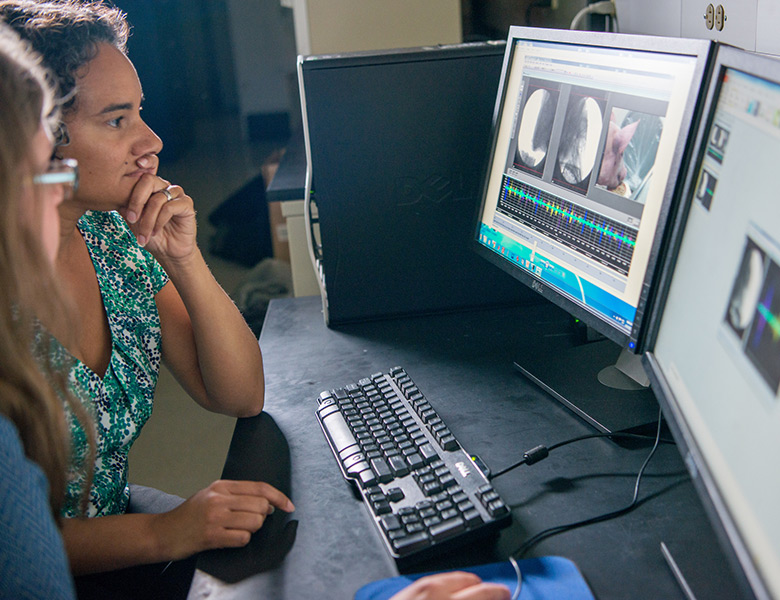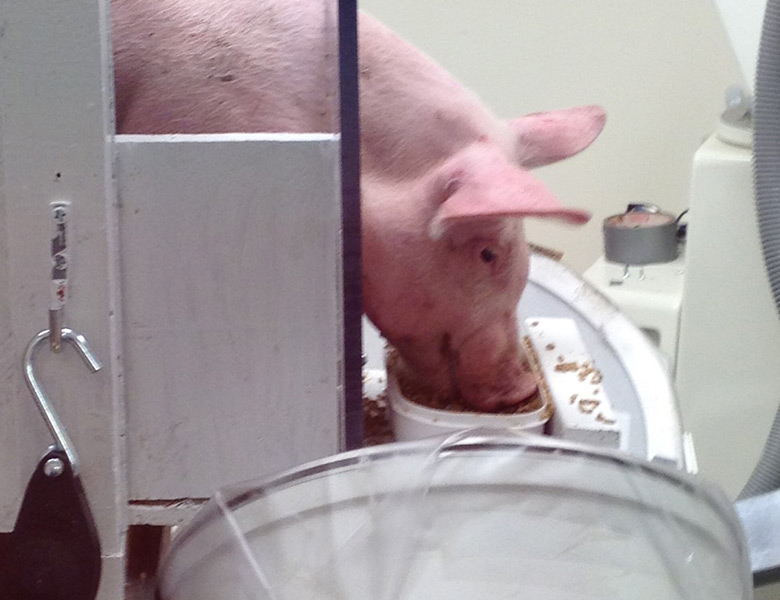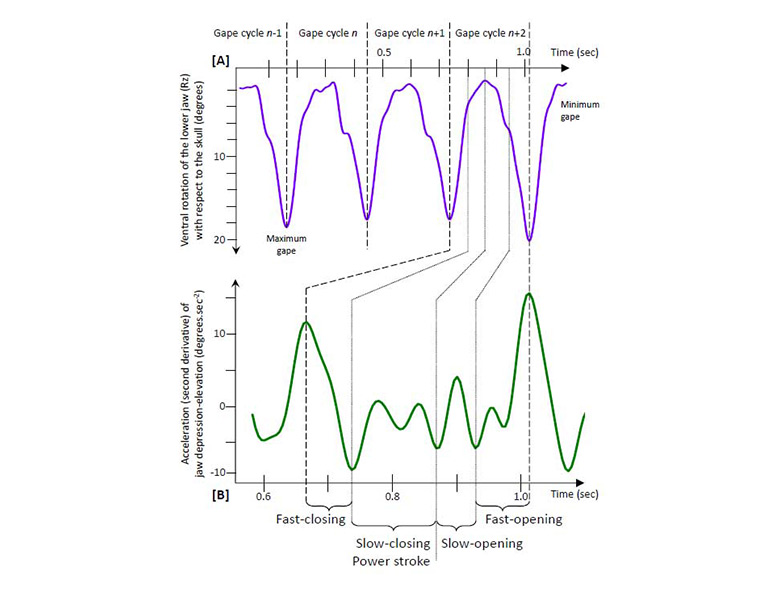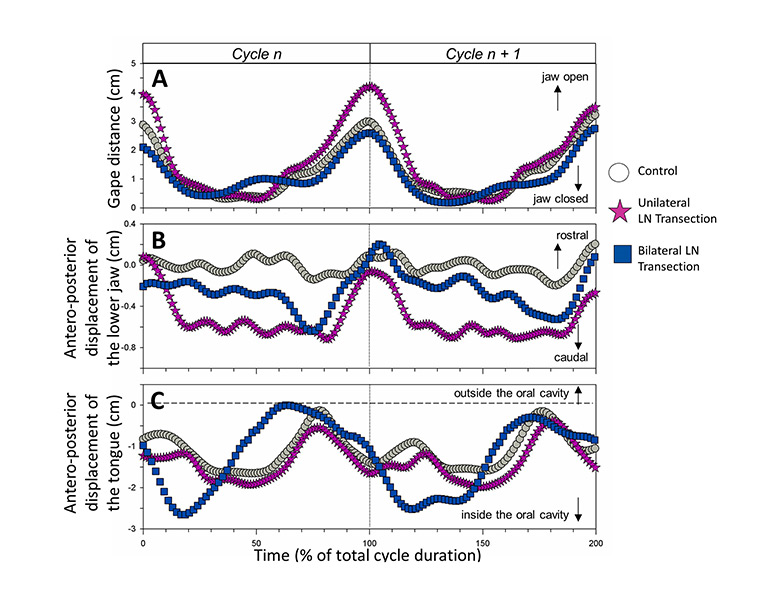Impact of Oral Sensory Nerve Injuries on Jaw-Tongue Coordination
The objective of this project is to understand how trauma to the lingual nerve, one of the primary sensory nerves of the tongue, impacts feeding behavior and the neural control and coordination of the tongue and jaw during feeding.
This nerve is frequently compressed (“crushed”) or transected during routine dental procedures (e.g., third molar removal) because of its anatomically unprotected location in the floor of the mouth. Because safe eating depends upon the integration of sensory information from the oral cavity to manage food, when oral sensation is negatively affected due to injury or disease, patients are at risk for not properly preparing solid foods for the swallow. In addition to pain, altered or reduced sensation, patients with lingual nerve injuries also report difficulties with feeding. However, the underlying biomechanical and functional basis of this oromotor dysfunction is unknown. This research examines the effect of unilateral lingual nerve compression and transection in the pig, an accepted animal model for human feeding biomechanics and oral function. This work integrates X-ray Reconstruction of Moving Morphology and electromyography from jaw, oral and tongue muscles to understand how movements and their underlying motor control are affected following lingual nerve injuries. This work will also identify functional changes and compensatory mechanisms in the tongue and jaw following lingual sensory disturbances. Understanding the impact of these injuries on oromotor output can benefit the design of rehabilitation strategies to restore oral function.
This work is funded by NIH 1R15DE023668.
Selected Publications
- Montuelle SJ, Olson R, Curtis H, Sidote J, and SH Williams. 2018. Flexibility of feeding movements in pigs: effects of changes in food toughness and stiffness on the timing of jaw movements. Journal of Experimental Biology 221: jeb168088 doi: 10.1242/jeb.168088



